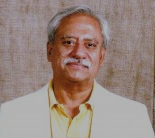By Frank Raj
John 4:23
“But an hour is coming, and now is, when the true worshipers will worship the Father in spirit and truth; for such people the Father seeks to be His worshipers.”
Ezekiel 34:11
For thus says the Lord GOD, “Behold, I Myself will search for My sheep and seek them out.”
“He who searches for Divine Reality with all his heart and soul and finds it, becomes aware that, before he began to seek God, God was seeking him, in order to draw him into the joy of fellowship with Him, into the peace of His Presence.”
– Sadhu Sundar Singh
\”The first step toward finding God, Who is Truth, is to discover the truth about myself: and if I have been in error, this first step to truth is the discovery of my error.\”
– Thomas Merton
Who is God? I must admit the question did not interest me for much of my life because I had been taught who He is and I accepted it – I wasn’t allowed to debate the issue, so what was the point in trying to ask questions?
The fact that I disobeyed most of His commandments was not much of an issue, there was always a priest I could confess to, who offered an easy penance and he was available every week after I had piled up another list of sins to be sorry for. God was nowhere in sight – it was always the middleman.
And so life went on, without giving thought to divinity; I was in awe of the Pope and the saints, not the Nazarene who I knew died in humiliation for everyone on a wooden cross. I was trying to exist as if in a swimming pool, easily treading water, gliding through life sensing no great burden of sin in my splendid youth.
Socrates said, “The unexamined life is not worth living.” Surely the same is true of one’s faith, yet the vast majority of people never take time to examine their faith seriously. To understand why they believe what they believe and how that impacts – or should impact – their lives.
Encountering a new way of thinking about and relating to God, has been likened to the Copernican Revolution. Indeed, it is to entertain the possibility, for the first time in one’s life, that one’s own religious beliefs may not be the centre of the universe.
I can recall when I actually started seriously coming to terms with Who is God?
It was in 1976, I was 27 years old, and it was probably the month of August, and a time of great personal upheaval in my life – I had two kids and the future looked very bleak. I needed help and it came in a most unexpected way – through two schoolmates who were the last people I wanted to meet in my sorry condition at the time. It is not a phase of my life I like to dwell on, except for the breakthrough that came about, so I’ll skip the details. Suffice it to say it is a truism – we don’t find God, He finds us – if we surrender our pride.
We only have a choice – to accept Him or reject Him. I shudder when I think I could easily have made the wrong choice. At the time I had wandered far away from all I knew to be true – a quote from Yeat’s poem The Second Coming would have summed up my life: “Things fall apart; the centre cannot hold.”
But there is another line in that poem that is relevant for me although I have no idea what Yeats had in mind: “Surely some revelation is at hand.” It came to me in a Scripture verse: 2 Timothy 1:7, “For God has not given us a spirit of fear, but of power, and love and of a sound mind.” It lifted me out of religious servitude into a journey of faith and I have never looked back.
Revelation is how we come to know, Who is God? There are plenty of recorded examples, perhaps one of the most famous being that of the English writer CS Lewis, the Atheist Oxford professor – ‘the most dejected, reluctant convert in all England.’ In his book, Surprised By Joy, ch. 14, p. 266 Lewis wrote of his conversion.
“You must picture me alone in that room at Magdalen, night after night, feeling, whenever my mind lifted even for a second from my work, the steady, unrelenting approach of Him whom I so earnestly desired not to meet. That which I greatly feared had at last come upon me. In the Trinity Term of 1929, I gave in, and admitted that God was God, and knelt and prayed: perhaps, that night, the most dejected and reluctant convert in all England.”
“I did not then see what is now the most shining and obvious thing; the Divine humility which will accept a convert even on such terms. The Prodigal Son at least walked home on his own feet. But who can duly adore that Love which will open the high gates to a prodigal who is brought in kicking, struggling, resentful, and darting his eyes in every direction for a chance of escape?… The hardness of God is kinder than the softness of men, and His compulsion is our liberation.”
GK Chesterton is another example and I love his poem The Convert:
“…The sages have a hundred maps to give
That trace their crawling cosmos like a tree,
They rattle reason out through many a sieve
That stores the sand and lets the gold go free;
And all these things are less than dust to me
Because my name is Lazarus and I live”
It was Christ who called Lazarus out of the tomb to a new life – He revealed who He was to a man deceased and lying cold for three days and raised him from the dead.
Something similar happened to me – despite my strong religious affiliation, I was morally dead; and uniquely resurrected like Lazarus.
Regardless of what you believe, the words of Jesus in the Gospel of John Chapter 11, verse 25 merit consideration: “I am the resurrection and the life. He who believes in Me, though he may die, he shall live.”
Long before we die physically, many of us are dead spiritually.
Frank Raj is the founding editor of Christ Not Christianity.


